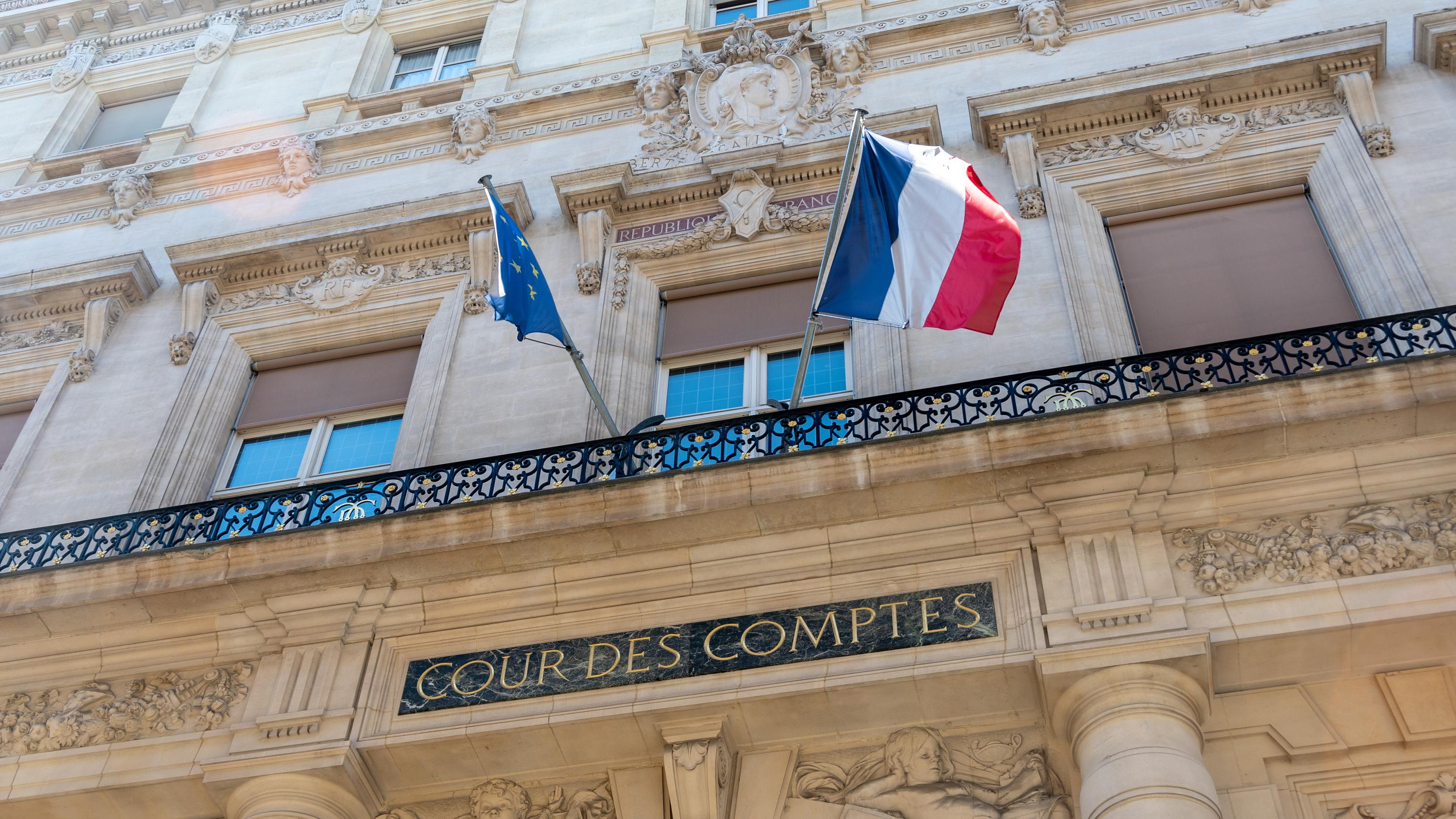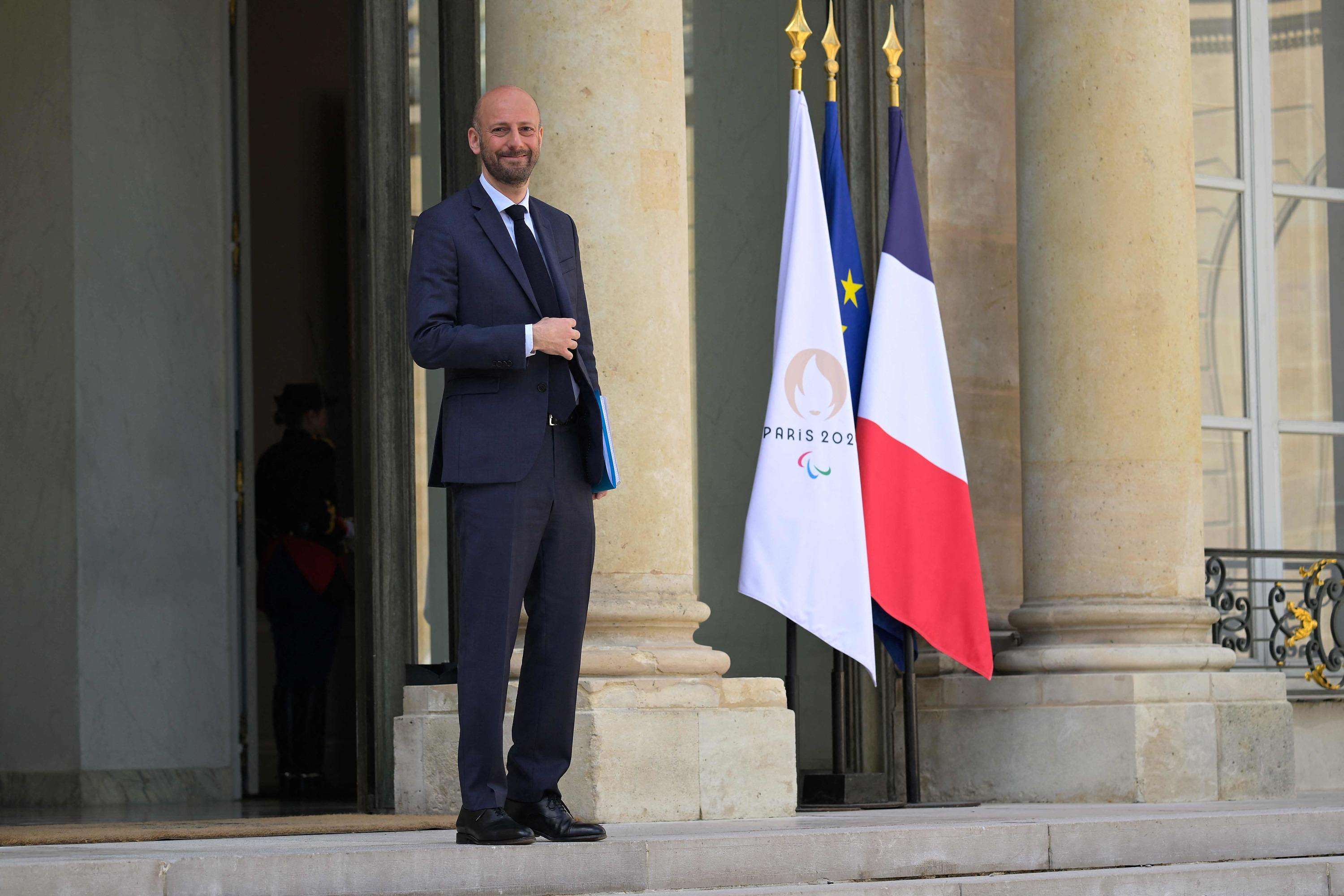“The finance bill for 2025 will be the most brutal since the financial crisis. It will take political courage and intelligence.” On the occasion of the annual report of the Court of Auditors, this Tuesday, its first president Pierre Moscovici announces the color. And she is far from cheerful. “The situation of public finances is worrying, or even beyond,” worries the former Minister of the Economy.
Since the start of the year, the tempo of billions in savings to be made to meet deficit reduction commitments has accelerated, for a government which is starting to have difficulty keeping up. The announcement of the 10 billion credit freeze plan for 2024 by the Minister of the Economy, Bruno Le Maire, less than a month ago, was triggered by that of his Minister for the Budget, Thomas Cazenave, which is counting on 20 billion cuts needed in 2025 (instead of the 12 billion initially announced) to meet the objectives in next year's budget, which will be presented in September.
Less than a week later, this Tuesday, the Court of Auditors went further by calculating in its annual report that, by 2027, total spending will have to reach 50 billion if the government wants to keep its promise to bring the deficit below 3% in 3 years. “A year ago, we were already saying that we needed to make 50 billion savings to maintain our multi-year trajectory. Today, we still need these 50 billion - or even a little more -, while nothing has been done in 2023. We have just spent a blank year on reducing the deficit", criticizes Pierre Moscovici, first president of the Court of Auditors, who laments: “our budgetary trajectory by 2027 was already not flamboyant, now we are starting it with a false start”.
In 2023 the government's ambition was to contain the increase in the deficit to 4.9% of GDP after 4.7% in 2022. This objective will be, by Bruno Le Maire's own admission, "significantly" exceeded (the INSEE's verdict is expected at the end of March), in particular because of tax revenues 7.7 billion below expectations. The march will thus be “even higher” for the year 2024 which should see the deficit fall to 4.4%. This objective is today considered “optimistic, even difficult to achieve” by the Court, even taking into account the 10 billion savings plan recently decreed. Note, moreover, that since the revision of its growth forecast for 2024 (lowered from 1.4% to 1%), the government no longer mentions this objective.
To avoid too severe a slippage, Bercy is seriously considering passing a supplementary finance bill (PLFR) to parliament after the European elections in order to further eliminate appropriations for the current year. In any case, the government will be forced to find in 2024 the budget cuts it must make for next year. “Making savings of 20 billion is very complicated,” judges Pierre Moscovici. But, in any case, the government cannot not do it. It might be brutal because it hasn't been done before. “It will take political courage and intelligence.”
If the government is at this point against the wall, it is in particular because of the interest burden on the debt (which should peak at around 3,200 billion at the end of the year, according to the Court) which is exploding with an increase of 10 billion expected in 2024. “Savings will be all the more difficult to achieve as the debt burden increases,” comments the first president. Between concerns about France's rating and those about the political climate, "we forget to talk about the main actor in this story: the market", underlines Pierre Moscovici.
The government, to respect its budgetary trajectory, will have to swim against a strong current - that of the increase in public spending which continues to progress significantly in 2024, under the effect of the State budget which displays more than 3.1% increase and that of social security expected at 2% growth in particular because of the indexation of pensions and social benefits (for a cost estimated at 25 billion) and health spending also on the rise. However, the control of public spending promised by the executive, “will require the implementation of considerable efforts” from this year, “contrary to what was planned” in the finance law, tackles the Court of Auditors which judges that the government strategy “must be better supported”. “For 2024, we must identify the 10 billion credits that will be canceled and for 2025, we must document the 20 billion in savings,” summarizes Pierre Moscovici. For this second challenge, Bercy continues to refer the identification of future savings to the “expenditure review” which will deliver its conclusions in the coming weeks. But, a year after its launch, the Court harshly judges this system which displays a “disappointing” result for its first exercise.
“Beyond just spending reviews, the necessary savings effort must preserve spending likely to sustainably support economic activity,” she adds. Because the government's economic and budgetary room for maneuver is, so to speak, non-existent, according to the institution. “Any bad macroeconomic surprise from 2024 or any budgetary achievement below the ambitions displayed would cause a deviation from the trajectory”, that is to say from the objective of returning below 3% in 3 years, warns the report. For example, from 2024, if growth rose to only 0.7% - a figure closer to the economic consensus than the government's forecast - this would result, all things being equal, in a public deficit of 3. 1% of GDP in 2027, develop the Court's experts.
This scenario would be a catastrophe for the European credibility of France which, even if it managed to meet its objective of reducing deficits, “would remain among the countries with the most degraded situation in the euro zone”, laments Pierre Moscovici .

 B:SM will break its investment record this year with 62 million euros
B:SM will break its investment record this year with 62 million euros War in Ukraine: when kyiv attacks Russia with inflatable balloons loaded with explosives
War in Ukraine: when kyiv attacks Russia with inflatable balloons loaded with explosives United States: divided on the question of presidential immunity, the Supreme Court offers respite to Trump
United States: divided on the question of presidential immunity, the Supreme Court offers respite to Trump Maurizio Molinari: “the Scurati affair, a European injury”
Maurizio Molinari: “the Scurati affair, a European injury” Irritable bowel syndrome: the effectiveness of low-carbohydrate diets is confirmed
Irritable bowel syndrome: the effectiveness of low-carbohydrate diets is confirmed Beware of the three main sources of poisoning in children
Beware of the three main sources of poisoning in children First three cases of “native” cholera confirmed in Mayotte
First three cases of “native” cholera confirmed in Mayotte Meningitis: compulsory vaccination for babies will be extended in 2025
Meningitis: compulsory vaccination for babies will be extended in 2025 In the United States, a Boeing 767 loses its emergency slide shortly after takeoff
In the United States, a Boeing 767 loses its emergency slide shortly after takeoff The A13 motorway will not reopen on May 1
The A13 motorway will not reopen on May 1 More than 1,500 items for less than 1 euro: the Dutch discounter Action opens a third store in Paris
More than 1,500 items for less than 1 euro: the Dutch discounter Action opens a third store in Paris 100 million euros in loans, water storage, Ecophyto plan… New measures from the executive towards farmers
100 million euros in loans, water storage, Ecophyto plan… New measures from the executive towards farmers Books poisoned with arsenic present in French libraries
Books poisoned with arsenic present in French libraries New York justice returns 30 works of art looted from Cambodia and Indonesia
New York justice returns 30 works of art looted from Cambodia and Indonesia Les Galons de la BD dedicates War Photographers, a virtuoso album on the Spanish War
Les Galons de la BD dedicates War Photographers, a virtuoso album on the Spanish War Theater: Kevin, or the example of an academic failure
Theater: Kevin, or the example of an academic failure Skoda Kodiaq 2024: a 'beast' plug-in hybrid SUV
Skoda Kodiaq 2024: a 'beast' plug-in hybrid SUV Tesla launches a new Model Y with 600 km of autonomy at a "more accessible price"
Tesla launches a new Model Y with 600 km of autonomy at a "more accessible price" The 10 best-selling cars in March 2024 in Spain: sales fall due to Easter
The 10 best-selling cars in March 2024 in Spain: sales fall due to Easter A private jet company buys more than 100 flying cars
A private jet company buys more than 100 flying cars This is how housing prices have changed in Spain in the last decade
This is how housing prices have changed in Spain in the last decade The home mortgage firm drops 10% in January and interest soars to 3.46%
The home mortgage firm drops 10% in January and interest soars to 3.46% The jewel of the Rocío de Nagüeles urbanization: a dream villa in Marbella
The jewel of the Rocío de Nagüeles urbanization: a dream villa in Marbella Rental prices grow by 7.3% in February: where does it go up and where does it go down?
Rental prices grow by 7.3% in February: where does it go up and where does it go down? Even on a mission for NATO, the Charles-de-Gaulle remains under French control, Lecornu responds to Mélenchon
Even on a mission for NATO, the Charles-de-Gaulle remains under French control, Lecornu responds to Mélenchon “Deadly Europe”, “economic decline”, immigration… What to remember from Emmanuel Macron’s speech at the Sorbonne
“Deadly Europe”, “economic decline”, immigration… What to remember from Emmanuel Macron’s speech at the Sorbonne Sale of Biogaran: The Republicans write to Emmanuel Macron
Sale of Biogaran: The Republicans write to Emmanuel Macron Europeans: “All those who claim that we don’t need Europe are liars”, criticizes Bayrou
Europeans: “All those who claim that we don’t need Europe are liars”, criticizes Bayrou These French cities that will boycott the World Cup in Qatar
These French cities that will boycott the World Cup in Qatar PSG: “Immense pride in continuing the adventure in Paris”, relishes Zaire-Emery
PSG: “Immense pride in continuing the adventure in Paris”, relishes Zaire-Emery Breaking: everything you need to know about this sport
Breaking: everything you need to know about this sport NBA: Lakers gain respite, Boston responds to Miami
NBA: Lakers gain respite, Boston responds to Miami Top 14: “a very severe red card”, estimates Labit (French Stadium)
Top 14: “a very severe red card”, estimates Labit (French Stadium)

















